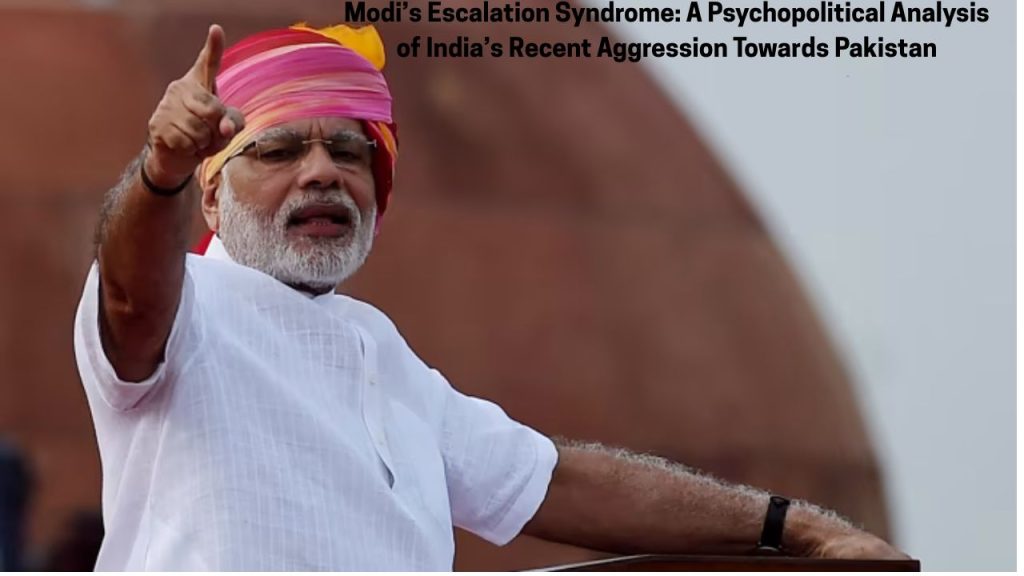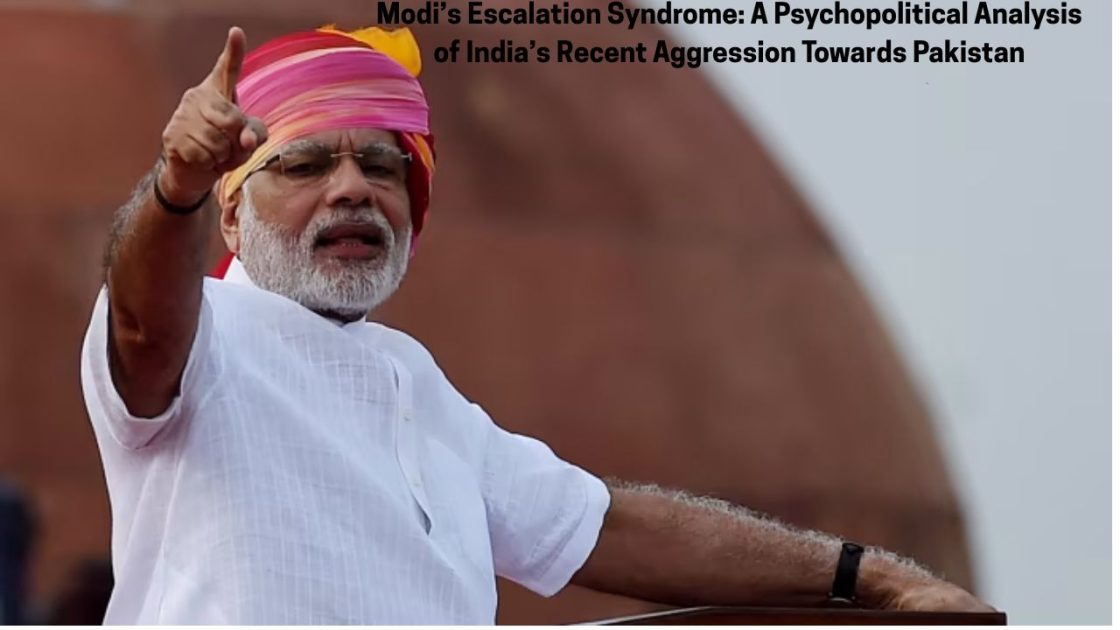
In the unfolding crisis of regional stability in South Asia, it is crucial to examine not only political maneuvers but the psychological architecture that drives them. The recent events surrounding the alleged “Operation Sindoor” and the Pahalgam incident are not merely tactical military choices—they are the behavioral echoes of a deeper psychological struggle within the leadership of India.
Narendra Modi’s Psychological Traits and Leadership Risks

Narendra Modi, India’s sitting Prime Minister, has long displayed psychological traits that raise red flags in the political psychology community. His pattern of behavior—marked by authoritarian control, emotional detachment in policy consequences, calculated aggression, and targeted hatred toward religious minorities—closely mirrors what scholars describe as malignant narcissism and authoritarian psychopathy. These are not mere political accusations; they are academically recognized behavioral tendencies that pose serious risks in leadership when coupled with nuclear capabilities.
Gujarat 2002 to Kashmir 2019: A Pattern of Domination

From Gujarat in 2002 to Kashmir in 2019, and now to the cross-border provocations of 2025, Modi’s actions suggest a persistent drive for domination fueled by insecurity. A leader with stable self-esteem fosters inclusion, negotiation, and peace-building. In contrast, leaders with fragile egos often externalize blame, exploit nationalistic sentiment, and construct external enemies to maintain political control—especially during electoral cycles.
Weaponization of Sports and Avoidant Aggression
The refusal to allow India’s cricket team to participate in the Asia Cup hosted by Pakistan was not just a sports policy; it was an escapist maneuver rooted in strategic humiliation. Modi weaponized sport—a universal symbol of peace and people-to-people connection—for political theater. When diplomacy and dialogue were possible, he chose detachment.
The Asia Cup Boycott: Strategic Humiliation
This reflects a psychological state known in trauma psychology as avoidant aggression—a refusal to face perceived vulnerability, masked by outward hostility.
Staged Provocations and Rally-Round-the-Flag Tactics
The Pahalgam incident, which Indian government and media swiftly blamed on Pakistan, bears the hallmarks of a staged provocation. The timing, narrative framing, and beneficiary of the incident—Modi, amid slipping popularity and economic unrest—aligns with classic rally-round-the-flag tactics.
The Pahalgam Incident: Timing and Beneficiaries
Manufacturing an external threat to unite a fragmented nation is a well-known psychological strategy of insecure regimes.
Pakistan’s Measured Response: Operation Widwah

Furthermore, claims of cross-border bombings under the codename Operation Sindoor—targeting Pakistani civilians under cover of night—are cowardly and criminal, by every standard of international law and military ethics. Yet, the response from Pakistan was measured, precise, and proportionate.
Cross-Border Bombings: Operation Sindoor
With surgical brilliance, Pakistan Air Force transformed this misadventure into Operation Widwah, downing five Indian aircraft including three Rafales, and neutralizing hostile installations with minimum collateral damage. This professionalism reflects Pakistan’s firm commitment to peace, sovereignty, and deterrence—not war.
Hindutva Extremism and Internal Crises in India
Modi’s policies are not only dangerous for Pakistan—they are corrosive to India’s soul. The rise in religious intolerance, forced conversions, lynchings, and hate crimes against Muslims, Sikhs, Christians, and Dalits paint a dark portrait of Hindutva extremism.
Rising Intolerance and Economic Despair in India
India’s own civil society—activists, artists, journalists, and former civil servants—have repeatedly raised alarm over this ideological terrorism. The suicide rates, economic despair, and rising inequality within India are the true crises being ignored while war hysteria is amplified for political gains.
Alignment with Israel and Middle Eastern Distractions

Modi’s growing alignment with Israel, particularly in rhetoric and strategy, is also telling. The attempt to distract the world from the ongoing genocide and ethnic cleansing of Palestinians by engaging Pakistan in manufactured conflict is morally indefensible.
South Asia’s Role in Global Peace
South Asia must not become a smokescreen for crimes in the Middle East.
The Call for International Intervention
At this critical hour, the Pakistani state, its armed forces, and its people have shown maturity, patience, and resolve. Pakistan does not seek escalation but will defend its honor and its people with every ounce of strength and strategy. The world must now ask: Is it safe for 1.4 billion Indians and 240 million Pakistanis to remain hostage to the insecurities of one man
Author Bio
Respected Prof. Dr. Muhammad Rizwan
Dr. Muhammad Rizwan is a Professor of Clinical Psychology at the National University of Medical Sciences and CEO of the School of Self-Education & Positive Personality Growth. A dedicated educator and psychology expert, he empowers individuals through personal development and skill-building. Known for his impactful workshops as a soft skills trainer, Dr. Rizwan inspires positive change in both academic and professional settings. Reach him at drcpsymuhammad.rizwan@gmail.com.








